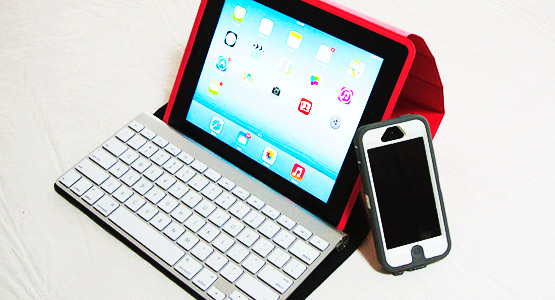It is mind boggling to imagine that the number of cell phones in use is estimated to exceed the planet’s human population. The International Telecommunications Union announced that, this year, cell phone numbers will reach 7.3 billion. Over 63 percent of these will be smartphones. On top of that, analyst firm Forrester projects that tablets will continue their “rocket-like growth trajectory” in the coming years—reaching close to 500 million in 2014.
Clearly, the proliferation of mobile devices has forever changed the way we work, communicate and live our lives. But is it all for the best? Consider these facts:
- Clemson University reports that technologies that increase around-the-clock availability are the leading sources of “technostress,” which can lead to significant chronic health ailments and reduced productivity.
- Sleep-texting has become more common—typically in the very early morning (3:00 a.m. to 4:00 a.m.). In a CBS New York post, Dr. Josh Werber, sleep specialist, speaks to sufferers’ consequences: “They’re not getting the deep sleep or the rapid eye movement which is really critical to higher brain function.”
- In a post entitled Insufficient Sleep is a Public Health Epidemic, the Centers for Disease Control and Prevention (CDC) mentioned “round-the-clock access to technology and work schedules” as a probable cause of insufficient sleep.
Commenting on research he co-authored, Michigan State University Assistant Professor of Management, Russell Johnson, stated that: “Smartphones are almost perfectly designed to disrupt sleep. Because they keep us mentally engaged late into the evening, they make it hard to detach from work so we can relax and fall asleep.”
This is only half of the issue with these devices. The blue light emitted from most mobile devices is known to interfere with melatonin production. Melatonin is integral to your sleep process. And there is an undisputed link between good sleep and good health.
Combining all of this, maybe it is time to explore the health impact of “always on” living, especially as it relates to getting a good night’s sleep. Here are a few suggestions to help you disconnect:
- Refine your routine: In Ayurveda, structure calms the senses and nervous system. Instead of using your devices well into the evening, set aside two brief blocks of time between dinner and bedtime to check emails and engage in online activity. Notify co-workers of your new boundaries to manage expectations. If you are being reasonable, they should respect the line you draw.
- Designate a usage area outside of your bedroom: Consider the bedroom off limits for mobile device usage. Make a habit to sit in the kitchen when you use your phone. A more formal structure will make it less comfortable for you to be always on.
- “Unplug” at least an hour before bedtime: Set up your charging station outside of the bedroom. Park your phone there at least an hour before retiring for the night. This will minimize the impact of blue light on your sleep.
- Adopt a “no device” rule at the dinner table: As a society, we are losing the social graces that have encouraged respect for others for decades. Teach your children to leave their phones away from the table. Start by being an example.
- Engage in nightly offline activities: Think about re-introducing board games and card games into your family leisure activities. It is a great replacement for a streaming movie. Limit the time you (and your kids) are allowed to be online. It sounds hokey, but it can transform relationships.
- Challenge yourself to be social… the old fashioned way: At your next gathering, turn off your smartphone and tuck it away. Re-learn social behaviors without the safety blanket of a device.
- Use airplane mode whenever possible: Take control of your life back from your device. Switch it to airplane mode as often as possible. This is particularly important while you are sleeping so you don’t have to deal with that interruptive “ding.” Additionally, more and more research is coming to light on the ill-effects of radio frequencies.
Having 7 x 24 connectivity has amazing advantages. Leverage them. And remember who is control of your device. Be smart about usage and get a good night’s sleep.


